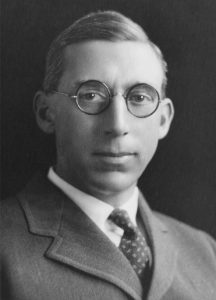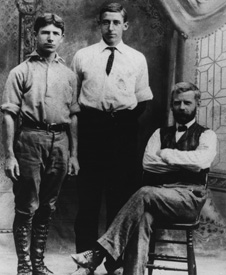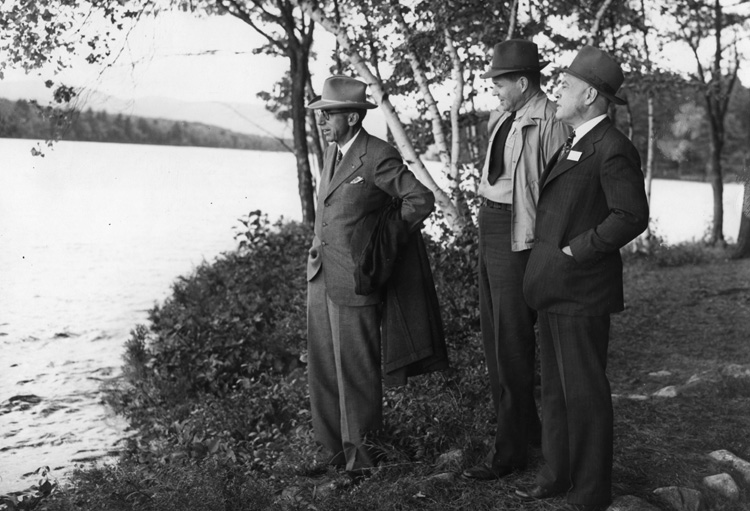William B. Greeley (1879-1955)
 3rd Chief of the Forest Service, 1920-1928
3rd Chief of the Forest Service, 1920-1928
William Buckhout Greeley was born in Oswego, New York, on September 6, 1879. He graduated from the University of California in 1901 and from the Yale Forest School three years later. Forestry school dean Henry S. Graves wrote: "Greeley had the highest mark of any recent graduates. He is a special star and I recommend him for almost any work which may come along." After starting with the Bureau of Forestry in 1904, he quickly was promoted through a variety of Forest Service positions to the Washington Office as assistant chief in charge of silviculture. During the Great War, after Chief Graves returned from France in 1918, Greeley took his place overseas with the 20th Engineers (Forestry) ending the war as a lieutenant colonel (after the war he preferred to be addressed by his military title "Colonel Greeley"). He was appointed chief after Graves resigned.
William B. Greeley Wrote:
"The national forests are no longer primeval solitudes remote from the economic life of developing regions, or barely touched by the skirmish line of settlement. To a very large degree the wilderness has been pressed back. Farms have multiplied, roads have been built, frontier hamlets have grown into villages and towns, industries have found foothold and expanded. Although the forests are still in an early stage of economic development, their resources are important factors in present prosperity.
There is probably no large area of forest land in the world on which the use and conservation of multiple resources have been so thoroughly studied or so completely developed in practice as on the national forests of the United States....Nothing better illustrates the democracy of the American forest policy or the decentralization in administering national forests than the conscientious effort of the Forest Service to weight the importance of different uses on each unit and to give every use its merited place in a bewildering regimen of administrative detail."

Greeley (center) with E.E. Carter and Austin Cary, 1904.
Greeley was able to put into actual practice the national forest policy that was inaugurated by Henry Graves. After Greeley was appointed chief, he faced a number of challenges, including the acquisition of new national forests east of the Mississippi River; making cooperation with private, state, and other federal agencies a standard feature of Forest Service management; fighting renewed efforts to place the Forest Service back into the Department of the Interior; and "blocking up" the national forests (exchange or purchase of lands inside or near the forest boundaries to simplify management).
During his administration the Clarke-McNary Act of 1924 became law which extended federal authority to purchase forest lands and to enter into agreements with various states to help protect state and private forests from wildfire. This was also the time, during the "roaring twenties," when prosperity brought about tremendous growth in recreation on the national forests - which led to the need to develop and improve roads for automobile use, campgrounds for forest visitors, and summer home sites for semi-permanent users.

Greeley (left), with Richard E. McArdle, and T.S. Goodyear on the shores of Lake Kezar, Maine, October 1946.
Additional Resources
Here is Col. W. B. Greeley, the Government's Chief Forester, USDA Press Release, 1920. [PDF]
"A Forester At War," excerpts from Greeley's wartime diaries published in Forest History, Winter 1961. [PDF]
"April 15, 1920: Greeley Named Forest Service Chief," from Peeling Back the Bark.
Browse photographs of William B. Greeley on the FHS Image Database.
William B. Greeley U.S. Forest Service Headquarters Collection Biographical File: Part 1, Part 2. [PDF]

